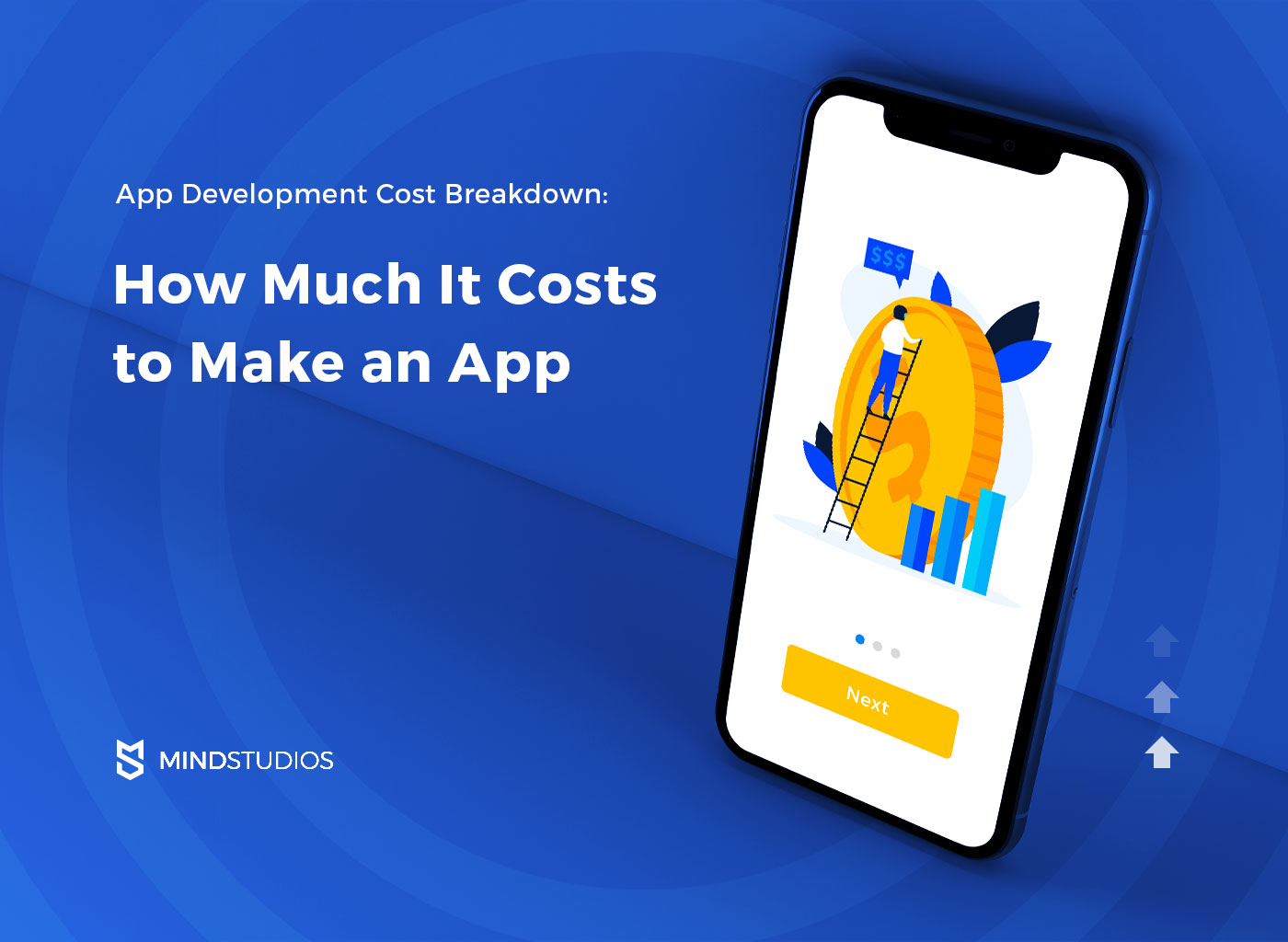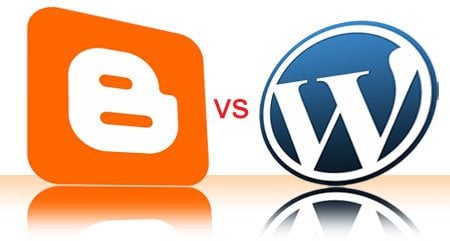
5 Apps To Start And Run A Blog Entirely From Your Phone
- December 20, 2021
- 0
Blogging is a great way to share your experiences, adventures, wisdom and musings with the rest of the world. With most of us leading busy lives, constantly on the run from one place to another, it can be difficult to set aside time when we get home to update our blogs regularly, which is why many have turned to writing and managing their personal archives from their mobile phones. Here are 5 apps to make the process of running a blog from your phone not just painless, but fun.
Contents
1. Blogging Platform: WordPress or Blogger

Before you can begin blogging, you will need to select a platform on which to publish your site. Several free, hosted options exist, such as the very popular WordPress and Blogger. Both of these platforms have apps that will allow users to compose, edit and publish their posts on the go.
The key difference between Blogger and WordPress is that while Blogger is a little more simple to configure and use, WordPress is easier to customize and to eventually transition over to a self-hosted site when you exceed the bounds of their free offerings. Whichever you choose, there are official apps available for the major mobile platforms.
Blogger (Android and iOS) – FREE
WordPress (Android and iOS) – FREE
Tip: After you post to your blog from either of the above apps, be sure to view the post in your phone’s browser with full site or desktop view enabled so that you can see what the post will look like to your non-mobile readers.
2. Text Editor: Google Docs
While you can definitely compose your text posts within your blogging app, overall, this is a bad idea as it is way too easy to lose your work. Instead, write all your posts in Google Docs so that your content will always be backed up and easily available on all your other platforms.
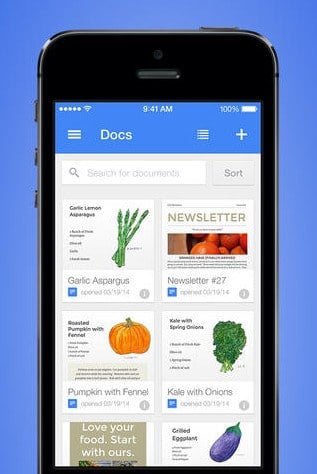
Google Docs (Android and iOS) – FREE
Tip: Add a trusted friend with solid grammar skills to your documents, through Google Docs collaboration features, so you can get a second set of eyes on any copy that you are unsure of.
3. Photo Editor: Pixlr Express
Beautiful and engaging imagery is absolutely necessary for a successful blog. A few years ago, it would have been nearly impossible to properly edit images from your phone, but with the somewhat recent advent of photo editing apps from known developers like Autodesk, this is now becoming a real possibility.

While there are several photo editing apps that we could recommend, my personal favorite is Pixlr Express. This app allows you to easily and quickly adjust, correct, crop, apply filters and more. Pixlr can also create collages, fix red eye, whiten teeth and apply artistic looking focal blurs.
Pixlr Express (Android and iOS) – FREE
Tip: Find a filter that you like (nothing too extreme) and use it on all the photos that you post, giving your blog a visual consistency throughout.
4. Social Networking: Buffer
Engaging with your readers on the various relevant social networks is an essential way to maintain and further build your readership. That said, between Twitter, Facebook, Pinterest, Polyvore, LinkedIn and more, it can be difficult to stay active and post regularly. Buffer is an extremely useful webapp that allows you to queue up social network posts for a variety of sites and automatically post them at specific intervals, essentially automating the process for you.
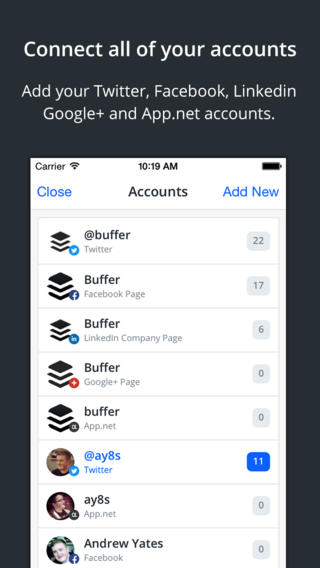
Buffer (Android and iOS) – FREE
Tip: Set aside some time every week to fill up your queue with social media postings that will be made throughout the week. Do some experimenting to determine how frequently and exactly when you should post for maximum effectiveness.
5. Traffic Analysis: Google Analytics
Google Analytics is an essential tool that allows you to glean insights into your reader’s habits and activity while on your site. There is some backend configuration that must be done on your blog before Analytics will function, however, both WordPress and Blogger make it very easy to set up.
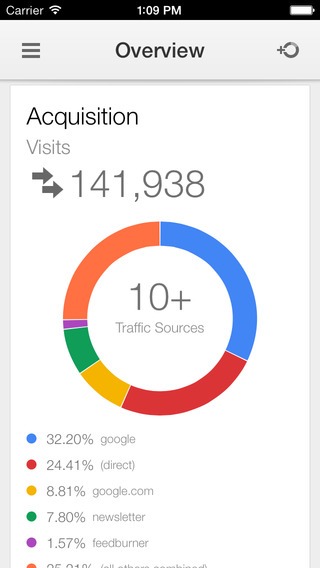
Google Analytics (Android and iOS) – FREE
Tip: For Google Analytics to be most effective, try not to make changes at random. Plan major changes to your blog to take place on a set schedule, with enough time between changes to measure their impact on your traffic.
With the above tools and some creativity, anyone can start and manage a successful blog on the run. Tell us about your blog in the comments.
[“source=lifehack”]



